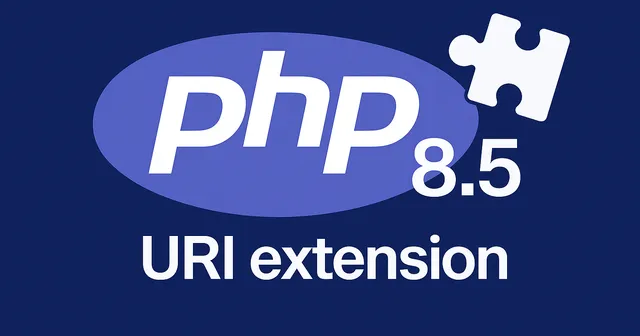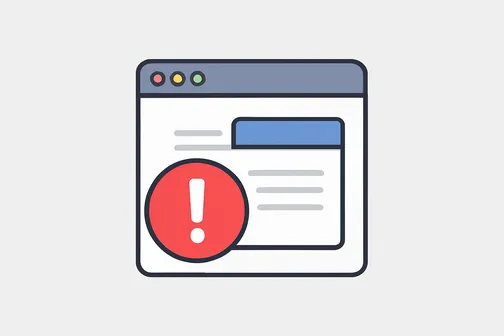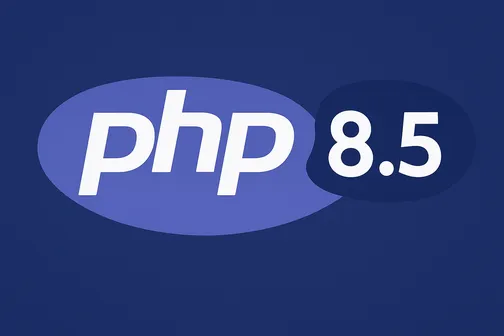PHP 8.5's New URI Extension: A Game-Changer for URL Parsing

PHP 8.5 introduces a powerful new URI extension that modernizes URL handling. With support for both RFC 3986 and WHATWG standards, the new Uri class provides immutable objects, fluent interfaces, and proper validation - addressing all the limitations of the legacy parse_url() function. This guide shows practical before/after examples and explains when to use each standard.
The Problem with parse_url()
For years, PHP developers have relied on parse_url() for URL parsing. While functional, it has several limitations:
$url = 'https://api.example.com:8080/users?id=123&sort=name#profile';
$parts = parse_url($url);
echo $parts['scheme']; // https
echo $parts['host']; // api.example.com
echo $parts['port']; // 8080
echo $parts['path']; // /users
echo $parts['query']; // id=123&sort=name
echo $parts['fragment']; // profile
Key limitations:
Returns an associative array rather than an object
Limited validation capabilities
No built-in URL building or modification methods
Inconsistent handling of edge cases
No support for modern URL manipulation patterns
Introducing the Uri Classes
PHP 8.5's new URI extension provides two standards-compliant implementations:
use Uri\Rfc3986\Uri;
$uri = new Uri('https://api.example.com:8080/users?id=123&sort=name#profile');
echo $uri->getScheme(); // https
echo $uri->getHost(); // api.example.com
echo $uri->getPort(); // 8080
echo $uri->getPath(); // /users
echo $uri->getQuery(); // id=123&sort=name
echo $uri->getFragment(); // profile
Available implementations:
Uri\Rfc3986\Uri- For RFC 3986 compliant URI parsing (general-purpose URIs)Uri\WhatWg\Url- For WHATWG URL standard (browser-compatible URLs)
Both classes offer:
Immutable URL objects with getter and setter methods
Standards-compliant parsing (RFC 3986 or WHATWG)
Fluent interface for URL manipulation
Better error handling and validation
Built-in support for URL building and modification
Building and Modifying URLs
One of the most powerful features is the fluent interface for URL manipulation:
Before:
$url = 'https://example.com/api/v1/users';
$parts = parse_url($url);
// Adding query parameters requires manual work
$parts['query'] = 'page=2&limit=20';
// Rebuilding the URL is tedious
$newUrl = $parts['scheme'] . '://' .
$parts['host'] .
$parts['path'] .
'?' . $parts['query'];
echo $newUrl; // https://example.com/api/v1/users?page=2&limit=20
After:
use Uri\Rfc3986\Uri;
$uri = new Uri('https://example.com/api/v1/users');
// Fluent interface makes modifications elegant
$newUri = $uri
->withQuery('page=2&limit=20')
->withFragment('results');
echo $newUri->toString();
// https://example.com/api/v1/users?page=2&limit=20#results
Changing URL Components
The immutable nature of Uri objects makes component changes safe and predictable:
Before:
$url = 'http://example.com/old-path';
$parts = parse_url($url);
// Manual reconstruction for every change
$parts['scheme'] = 'https';
$parts['path'] = '/new-path';
$parts['query'] = 'updated=true';
$newUrl = $parts['scheme'] . '://' .
$parts['host'] .
$parts['path'] .
'?' . $parts['query'];
echo $newUrl; // https://example.com/new-path?updated=true
After:
use Uri\Rfc3986\Uri;
$uri = new Uri('http://example.com/old-path');
$newUri = $uri
->withScheme('https')
->withPath('/new-path')
->withQuery('updated=true');
echo $newUri->toString(); // https://example.com/new-path?updated=true
Key Benefits
1. Type Safety and IDE Support
The Uri class provides full type hints and autocomplete support in modern IDEs, making development faster and less error-prone.
2. Immutability
Each modification returns a new Uri instance, preventing unintended side effects and making code more predictable.
3. Better Validation
The Uri class validates URLs during construction and modification, catching errors early rather than producing malformed URLs.
4. RFC Compliance
Full compliance with RFC 3986 ensures consistent behavior across different URL formats and edge cases.
5. Normalized and Raw Output
The Uri class provides both normalized and raw output methods, giving you control over URL representation:
use Uri\Rfc3986\Uri;
$uri = new Uri('HTTPS://thephp.foundation:443/sp%6Fnsor/');
echo $uri->toString();
// https://thephp.foundation/sponsor/ (normalized)
echo $uri->toRawString();
// HTTPS://thephp.foundation:443/sp%6Fnsor/ (raw input preserved)
Migration Tips
While the Uri class is superior for new code, you don't need to rush to update existing parse_url() calls. Consider using the Uri class for:
New projects and features
Code that frequently manipulates URLs
APIs that work with complex URL structures
Situations requiring strict URL validation
When you need to choose between RFC 3986 and WHATWG standards
Choosing Between RFC 3986 and WHATWG
Use Uri\Rfc3986\Uri when:
Working with general-purpose URIs (FTP, file, custom schemes)
You need RFC 3986 compliance for backend services
Parsing non-web URIs
Use Uri\WhatWg\Url when:
Building web applications that interact with browsers
You need browser-compatible URL parsing
Working with HTTP/HTTPS URLs that users will see
Performance Considerations
The Uri class has minimal performance overhead compared to parse_url(). For most applications, the benefits far outweigh any negligible performance difference. If you're parsing millions of URLs per second, benchmark your specific use case.
Conclusion
PHP 8.5's URI extension represents a significant step forward in URL handling. The new URI classes (Uri\Rfc3986\Uri and Uri\WhatWg\Url) provide modern, standards-compliant approaches that make URL parsing, manipulation, and validation more intuitive and reliable.
Whether you're building APIs, web scrapers, or any application that works with URLs, the URI extension will make your code cleaner and more maintainable. Best of all, it's bundled directly with PHP 8.5 - no extra installation required!
Start exploring the URI extension in your PHP 8.5 projects today, and experience the difference that proper URL handling can make!
Official Resources
Standards: RFC 3986 and WHATWG URL Living Standard
Important: The URI extension is bundled with PHP 8.5 and always available - no separate installation or ext-urirequirement needed!
Sources
RFC: RFC 3986 and WHATWG URL compliant API - The official proposal
PHP 8.5 Release Notes - Official PHP 8.5 documentation
RFC 3986 Specification - URI Generic Syntax
WHATWG URL Living Standard - Browser URL specification
Note: The URI extension is available in PHP 8.5+ and is bundled by default. Make sure your environment is updated before using these features.







